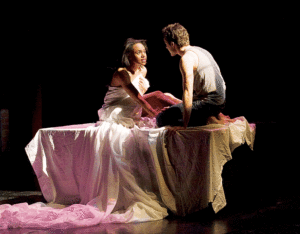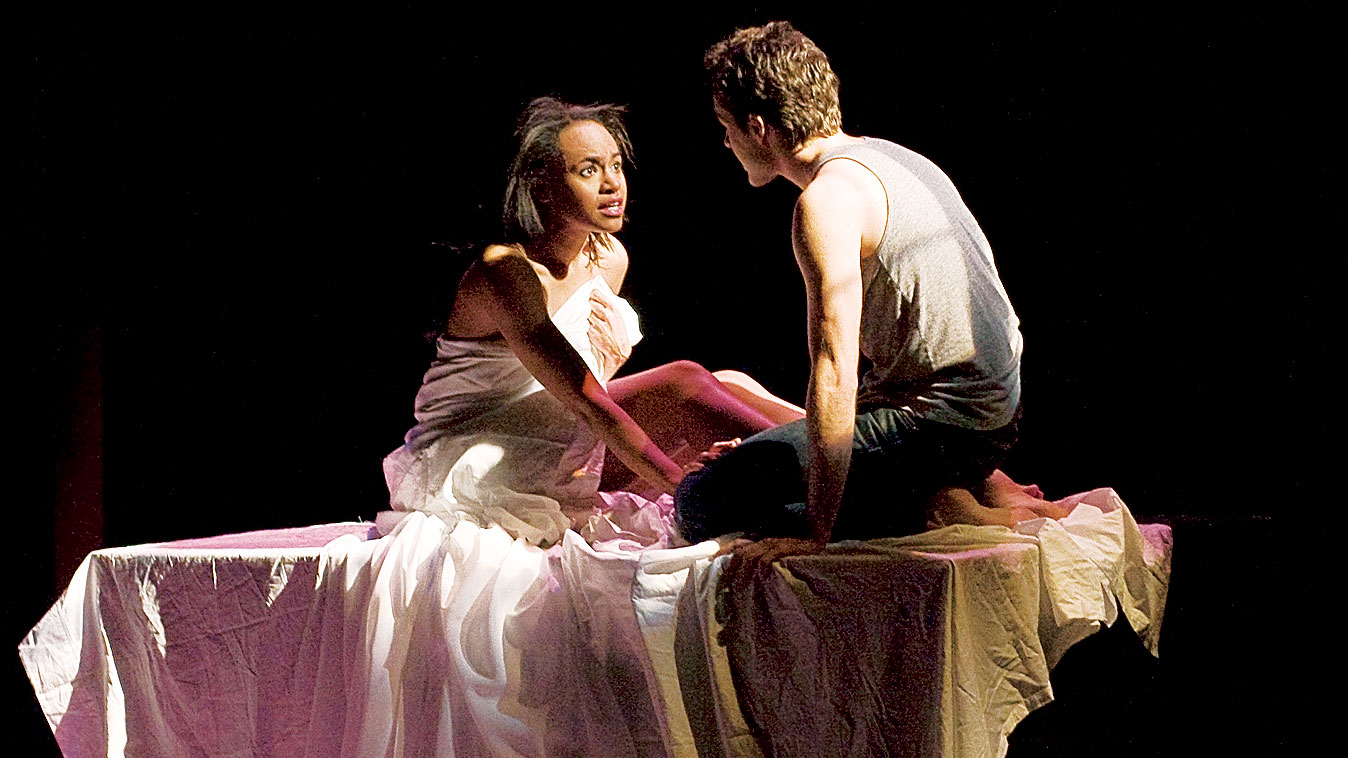John Nyman
Arts Editor
The Art of Time Ensemble’s latest production, Shakespeare: If Music Be…, presented a slew of entertaining drama, high-calibre classical music, creative dance and a whole lot of crappy Shakespeare tie-ins. Despite presenting some great and undeniably modern work, the December performance at Harbourfront’s Enwave Theatre also proved that working with The Bard in a modern setting requires more creativity than just relentless praise.

Andrew Burashko, pianist and artistic director of the ensemble of musicians, actors and dancers, described prior to the show his intention to present the art and ideas that have been inspired by Shakespeare over the years.
The core components of the show matched Burashko’s vision well, coming together in an expertly presented milieu of modern classical compositions, contemporary dance and acting that did justice to Shakespeare’s lines; however, to say that the show was a tribute to Shakespeare or even to say that it was about Shakespeare or his works would be a mistake, and the show’s attempts to become this were failures.
The show’s opening featured several of the ensemble’s actors decanting lengthy quotations by famous authors and artists, all on the topic of Shakespeare. The bit got old fast, besides the fact that quotations only barely qualify as performance.
Most of all, though, I began to have doubts about a collection of artists who seemed to gape in awe at the Elizabethan playwright instead of discussing any specific creative connection or inspiration that comes from his work. Why shouldn’t serious artists recognize the room for improvement and cross-historical collaboration that inevitably comes with centuries-old work instead of prostrating themselves to its genius? Shakespeare would not have wanted it that way.
The show’s most direct attempts to translate Shakespeare’s literary work into other media was not supported by the immense creativity needed to perform such a feat.
Rufus Wainright’s musical treatment of Shakespeare’s “Sonnet 20,” performed by Kevin Fox, seemed to ignore the ways Shakespeare’s poetry often works through its lack of rhythm, doing things in writing that simply don’t work in music. Ultimately, both the contemporary music and the classic text suffered.
Fortunately, among the strengths of the Art of Time Ensemble’s production was its extremely fast pacing. The format, which almost resembled flipping through TV stations devoted to classical music and performance, was a definite plus for skittish fans worried about the show being too boring.
The format of the show also spotlighted the highest points of the production, which were most often those that moved furthest away from Shakespeare’s words in their creative content. The night’s lyricless classical music performances, which were interspersed between its theatrical segments instead of merely providing backdrops, were well-executed and enjoyable. Burashko’s solo piano performances during the Romeo and Juliet segment were simultaneously energetic and flowing, while his duets with violinist Erika Raum from Korngold’s composition, Much Ado About Nothing, were as lively and jaunty as the scenes from the play for which they were composed.
The highlight of the night was the ensemble’s dance performances. The National Ballet of Canada’s Tanya Howard and Patrick Lavoie performed James Kudelka’s “Romeo and Juliet Before Parting” with the high degree of athleticism expected from great modern dance.

The night’s final segment on Hamlet’s Ophelia, however, stole the show. After an outstanding theatrical performance of an iPod-toting Ophelia by Cara Ricketts, dancer and choreographer Peggy Baker performed her award-winning “Why the Brook Wept” to John Cage’s piano piece, Ophelia – played by Burashko. Picking up on the theme of Ophelia’s madness with a series of psychologically agonized and hauntingly artificial movements, Baker presented a form of dance I could have never imagined would be possible.
Regardless of its individual excellence, Baker’s performance was one of the most memorable contributions to the show specifically because of how it was separate from Shakespeare’s original vision. By taking
the themes and feelings Shakespeare introduced and expanding their scope into contemporary techniques and non-literary media, artists can use his works as a jumping off point to create new themes and create their own personal innovations.
Shakespeare: If Music Be…, however, proved that drawing from The Bard can also be a harmful turn for an artistic production, as many of the ensemble’s artists failed to step up to the level of creativity and passion necessary to make it work. The kind of unfocused pandering that was set up as the main theme of the show is unacceptable in any contemporary work, regardless of the genius of the artist who inspires it. For better or worse, the rest of the Art of Time Ensemble’s season is filled with more opportunities to pay proper tribute to av genres or artists, including an exploration of 150 years of waltz with singer Steven Page and a staging of Orson Welles’ The War of the Worlds. As the group continues to explore the art of homage, we can at least be assured that their eclectic format will let something amazing rise up to steal the show.
Art of Time Ensemble 2010 – 2011 season
Robert Schuman: 1810 – 2010
Sept. 17-18
An exploration of the great composer’s music accompanied by readings of his critical writings and personal letters.
Abbey Road
Oct. 21
A new arrangement of the classic Beatles album by top Canadian artists.
Shakespeare: If Music Be…
Dec. 9-11
Take This Waltz
Feb. 4-5
A wide variety of songs following the history of the waltz, featuring singer Steven Page.
The War of the Worlds
Mar. 31-April 3
A tribute to film composer Bernard Herrmann, including a restaging of Orson Welles’ classic radio drama.
The Songbook 5
May 24-25
Singer-songwriter Sarah Slean and an all-star ensemble perform new arrangements of songs by a wide variety of musicians.
Shakespeare and the art of homage


